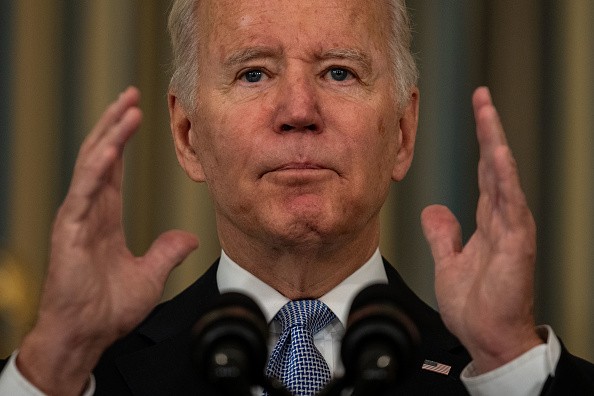
President Joe Biden signed legislation on Thursday prohibiting businesses, like Huawei Technologies Co., and ZTE Corp., from acquiring new equipment licenses from U.S. authorities.
Bipartisan Bill Reaches Near Unanimous Support from Both Congress and Senate
In a recently published article in Yahoo News, the law had near-unanimous support on Capitol Hill, having cleared the Senate by voice vote last month and the House by a vote of 420-4 the week before. Both Republican and Democratic lawmakers sponsored it.
The White House hailed the bill's sponsors, Senate Intelligence Committee Vice Chairman Marco Rubio (R-Fla.) and Sen. Ed Markey (D-Mass. ), as well as House Minority Whip Steve Scalise (R-La.) and Rep. Anna Eshoo (D-Calif.), in a statement (D-Calif.).
Meanwhile, last year, former President Trump signed legislation prohibiting the use of government funding to acquire Huawei equipment and establishing a $1 billion fund to aid the FCC in tearing out and replacing existing equipment judged to pose a hazard, according to a report published in The Hill.
Read Also : U.S. Ban on Chinese Firms: President Joe Biden Brings List Previously Issued by Trump to 59
What is the Secure Equipment Act?
The Secure Equipment Act prohibits the Federal Communications Commission (FCC) from evaluating or approving items from firms on the FCC's "covered list," which includes Huawei and ZTE, two Chinese telecoms giants, due to its alleged security threats.
The FCC overwhelmingly agreed last year to officially categorize Huawei and ZTE as national security risks, citing their links to the Chinese Communist Party and fears about spying. The national security threat classification prevents U.S. telecommunications firms from purchasing items from these organizations using FCC subsidies, according to a report published in Reuters.
Furthermore, the Commerce Department added Huawei and ZTE to its "entity list," effectively blacklisting the groups. Huawei, one of the largest global providers of 5G equipment, recently reported a significant drop in sales due to measures taken to block the company from doing business in the United States.
Sponsors of the Bill Release a Statement
In a statement, Rubio argued that Chinese state-owned businesses like Huawei and ZTE are recognized national security concerns that have no place in the country's telecommunications network. At the same time, Markey underlined the need to animate our technology with our principles in a separate statement.
In a published article in MSN News, at the time, Scalise said the bill sends a strong message to the Chinese Communist Party that America is dedicated to preserving our people's privacy and security. In contrast, Eshoo said she was anxious to have the bill signed into law by the President as soon as possible.
FCC Designates Five Chinese Companies That Pose Threats
Under a 2019 legislation designed to secure U.S. communications networks, the FCC classified five Chinese corporations as presenting a national security concern in March. Huawei and ZTE, as well as Hytera Communications Corp, Hangzhou Hikvision Digital Technology Co, and Zhejiang Dahua Technology Co, were among the firms identified.
Even as legislators sought legislation to demand it, the FCC voted unanimously in June to forward a proposal to block permits for equipment in U.S. telecommunications networks from certain Chinese corporations. Beijing expressed its displeasure with the FCC decision in June.
Related Article : Trump Throttles Huawei With More Restrictions Anew








